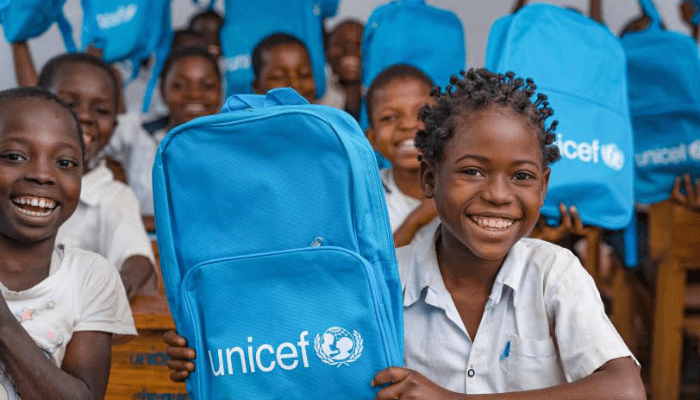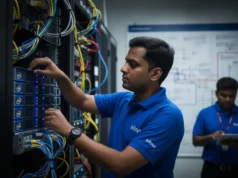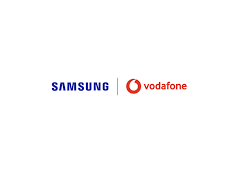In a defining step for the continent’s digital future, UNICEF and the GSMA have jointly launched Africa’s first-ever Taskforce on Child Online Protection (COP). The initiative, unveiled at MWC Kigali 2025, brings together governments, telecom companies, civil society, and youth voices to ensure that African children can explore the internet safely and confidently.
As mobile internet use soars across the continent, the need for digital safety has never been greater. Africa’s youth — the world’s youngest population — are spending more time online for education, entertainment, and social interaction. But that access also exposes them to cyberbullying, exploitation, misinformation, and other online dangers.
The new Taskforce, spearheaded by UNICEF and GSMA, aims to provide a united, Africa-led response to these growing threats. It will serve as a collaborative platform for policymakers, private sector players, and child-rights advocates to build safer online spaces for the next generation.

Table of Contents
Why the Taskforce Matters for Africa
For decades, UNICEF has championed children’s rights — from health and education to protection from abuse. Now, with digital life deeply woven into children’s daily experiences, UNICEF believes protecting kids online is just as essential as protecting them offline.
Africa’s digital story is unique: millions of children come online for the first time through smartphones rather than computers. In rural and urban areas alike, children use shared devices, often without guidance or filters. UNICEF and GSMA’s joint 2025 whitepaper, Enhancing Child Online Protection in Sub-Saharan Africa, revealed that while access has grown dramatically, online safety frameworks haven’t kept pace.
Etleva Kadilli, UNICEF’s Regional Director for Eastern and Southern Africa, described the situation as urgent:
“As Africa’s children step boldly into the digital world, their safety must come first. The Taskforce is about ensuring that technology protects and empowers them — not puts them at risk.”
This new platform is designed specifically for African realities — diverse languages, cultures, and internet habits. It will coordinate stakeholders from different regions to create harmonised safety measures that reflect how children actually use the internet.

What the Taskforce Will Do
The Africa Taskforce on Child Online Protection is more than a symbolic alliance — it’s a practical action hub. Its main goals include:
- Promoting “safety by design”, ensuring online platforms, mobile apps, and digital services integrate child-protection features from the start.
- Aligning national and regional policies to strengthen legal frameworks on child online safety.
- Creating awareness programmes that educate parents, teachers, and children about digital risks and responsible use.
- Encouraging collaboration between telecom operators, regulators, and youth groups to share best practices and tools.
- Supporting law enforcement with capacity building to track and respond to online exploitation cases effectively.
The Taskforce brings together a diverse coalition — from MTN Group, Vodacom, and Safaricom, to Child Helpline International, the Internet Watch Foundation, and youth representatives from Nigeria, Kenya, and Rwanda.
Caroline Mbugua, GSMA’s Director of Public Policy for Africa, emphasised that this initiative turns years of research into concrete action.
“We’ve moved from conversation to coordination,” she said. “Through UNICEF’s partnership and industry collaboration, we’ll embed safety at every level of Africa’s digital transformation.”
Nigeria and the Wider African Impact
Nigeria, with its tech-savvy youth and booming mobile economy, stands at the heart of this movement. The country has one of the continent’s largest online populations, making it both an opportunity and a challenge for child protection.
For Nigeria, the Taskforce offers a platform to strengthen national online-safety policies, train teachers and parents on digital literacy, and encourage telcos to adopt child-safe standards. It also opens the door for Nigerian youth to contribute directly to regional decision-making.
As UNICEF continues its work with local partners in education and digital innovation, it will help ensure that online spaces nurture learning, creativity, and confidence rather than fear or harm. The agency has already supported projects like “Internet of Good Things,” which brings child-friendly educational content to millions of mobile users across Africa — proof that technology can empower when guided responsibly.
The broader African vision is equally clear. By integrating UNICEF’s child-protection expertise with GSMA’s industry reach, the Taskforce could help establish Africa as a global leader in digital child safety. It signals to the world that Africa is not just catching up technologically — it’s shaping a safer digital model for the future.
The Road Ahead
Of course, challenges remain. Many African countries still lack comprehensive legislation on cyber safety. Infrastructure gaps mean some areas have limited access, while others face unfiltered exposure to harmful content. Enforcement is uneven, and digital education for parents and teachers is still limited.
Yet the creation of the Africa Taskforce on Child Online Protection represents a collective commitment to progress. With UNICEF’s experience in children’s rights and GSMA’s vast industry network, this partnership is poised to make a measurable impact — through training, advocacy, and policy reform.
The next phase will focus on monitoring results, building national taskforces, and integrating protection guidelines into tech design. Success will depend on consistent funding, government support, and the continued involvement of young Africans themselves.
As UNICEF officials frequently remind policymakers, digital transformation must always go hand-in-hand with digital safety. Children deserve not just access, but protection. Not just freedom online, but fairness and respect.

Conclusion
The launch of the Africa Taskforce on Child Online Protection marks a turning point for Africa’s digital generation. By prioritising safety, empowerment, and inclusion, UNICEF and GSMA are setting the foundation for a safer internet — one where children’s voices matter and their futures are shielded from harm.
In the words of UNICEF, “Every child deserves to be connected, protected, and respected — both offline and online.”
Join Our Social Media Channels:
WhatsApp: NaijaEyes
Facebook: NaijaEyes
Twitter: NaijaEyes
Instagram: NaijaEyes
TikTok: NaijaEyes
READ THE LATEST EDUCATION NEWS




